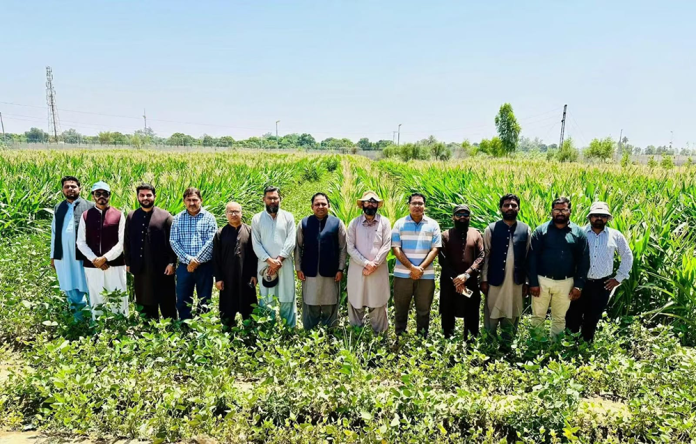Chinese intercropping technology has been invigorating Pakistan’s agricultural sector since it put down roots in the country in 2018. This year, various achievements have been made in optimization and localization, especially in cotton.
Now, the National Research Center of Intercropping (NRCI) of Pakistan is registering farmers who are interested in adopting the technology for maize, wheat, sugarcane and cotton production. In the upcoming maize sowing season, NRCI plans to extend demonstrations of its maize-soybean intercropping system to additional districts in Pakistan, with a special focus on Punjab. It’s learned that the intercropping technology has already been tested by over 1,000 farmers on their own farms, delivering promising results in terms of yield and resource efficiency.

“Early field trials have shown promising results, with some farmers in Punjab achieving yields of 10-14 maunds of soybean along with 15-18 maunds of cotton per acre,” Dr. Muhammad Ali Raza, NRCI Director and International Research Fellow at Gansu Academy of Agricultural Sciences (GAAS) told the reporter.
Particularly, this year, NRCI is promoting a new approach to encourage cotton farmers to adopt strip intercropping of Bt cotton and soybean with an early February sowing, which helps rejuvenate cotton production in Pakistan in the context of the declining cotton production area and yield per acre in the country from 2014 to 2023.

“We have optimized cotton-soybean intercropping technology, which is crucial for Pakistan, as farmers previously suffered great losses from whitefly attacks and pink bollworm infestations, leading some to hesitate in sowing cotton. However, with Bt cotton and soybean intercropping, farmers can achieve higher soybean yields while maintaining cotton production,” Dr. Raza said.
Additionally, professors from Peking University have provided Pakistan with high-yield maize and soybean varieties, along with specialized herbicides to manage weeds in maize-soybean intercropping fields, according to Dr. Raza.


